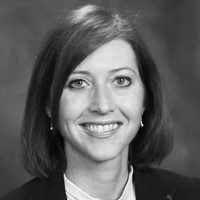This text based course is a transcript of the live webinar titled, "Improving Memory Using the Spaced Retrieval Technique for Occupational Therapists" presented by Megan L. Malone, M.A., CCC-SLP.
>> Megan Malone: Mainly what I am going to be sharing with you today is the use of this technique with the older population, specifically with the dementia population, but as we are going to find out, spaced-retrieval has been successfully used with many different populations with a number different diagnoses. Even though some of the case studies are more bent toward the adult population with dementia, please do not let that deter you from using it with other populations that you maybe treating.
As we get started here, I do have to make a few acknowledgments to the many people who participated in the research related to spaced-retrieval. Previous to my work at Kent State, I worked for Myers Research Institute in Cleveland, Ohio, and as an affiliate of Menorah Park Center for Senior Living. That was really where a lot of these grants got moving forward with spaced-retrieval. Dr. Cameron Camp, who was our director, is really a pioneer in this area, and I definitely want to give acknowledgement to him and to our entire research staff. We also did a number of grants related to different state organizations, in particular, the state of New York. We worked with their Department on Aging on using spaced-retrieval within long-term care settings and how to roll the program out through a facility setting, which we know is very difficult to do. It is one thing to learn a technique and do it yourself in your practice, but to get other people to catch on and embrace it is another. We did a great grant that really looked at how to implement a program into a facility setting. I would like to thank them, and that includes my friends Ellen and Kelli, who work for some of the facilities in New York. Hearthstone Alzheimer's Care in Massachusetts does wonderful work with older adults and has continued to carry on some of the work that Myers Research Institute did. I would like to acknowledge them, as well as, Northern Speech Services, the National Institute on Aging, and the Retirement Research Foundation. A big thank you to all those people.
Objectives
Our main objectives for today is to really define what the spaced-retrieval technique is, and then we are going to talk about how it works. The way that it works is really based on a model of memory that supports learning in persons with cognitive deficits. We are going to do a little bit of foundation work on understanding memory, so then you can better understand why this technique is successful. Finally we are going to talk about developing appropriate goals incorporating SR into some case study examples.
Assumptions About Dementia
Let's get started by talking about some common assumptions about dementia. Luckily this is changing a little bit, but unfortunately there is a large number of people who are working in healthcare who really do believe that persons with dementia cannot learn or remember any new information, and that the best way to take care of these people is to just make them comfortable, accept their idiosyncrasies, and be patient with them. Really what we are trying to do is change that viewpoint. Persons with dementia can indeed learn quite well if we capitalize on their remaining abilities.

